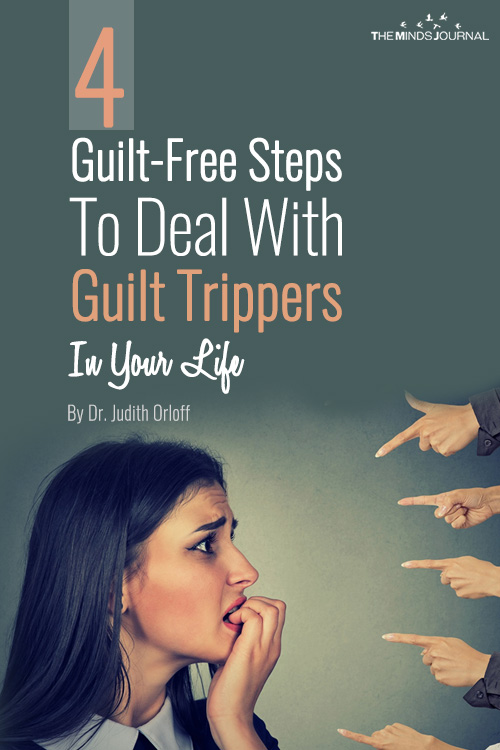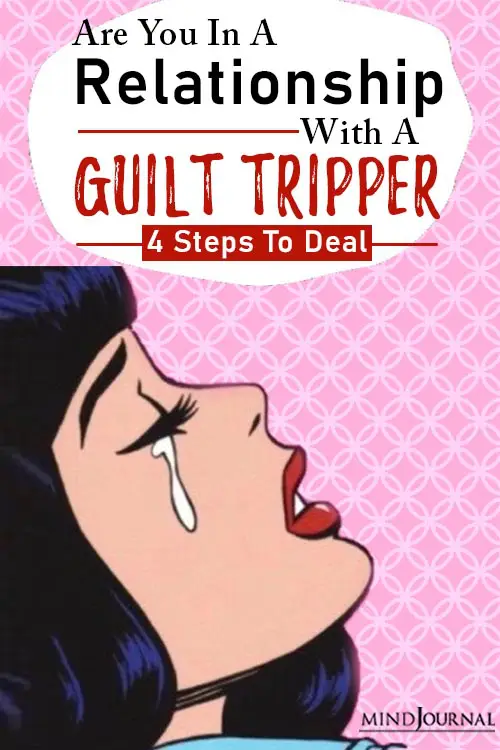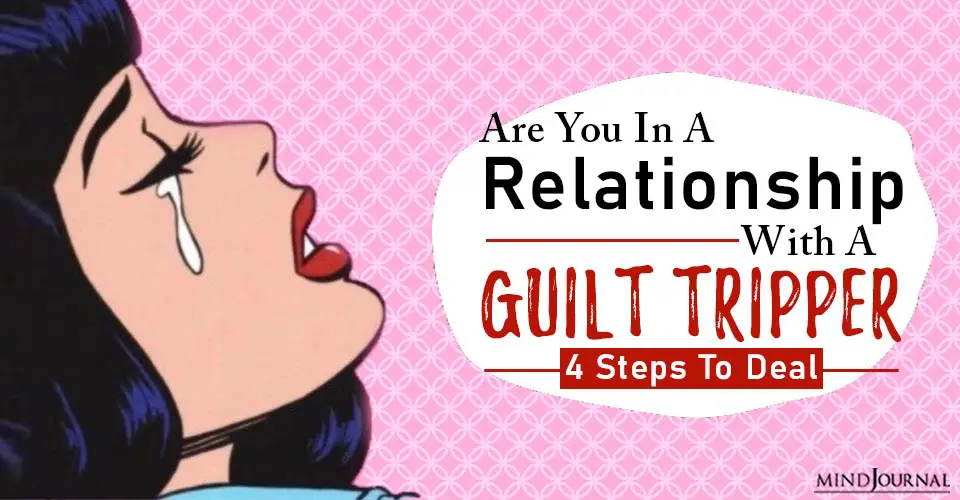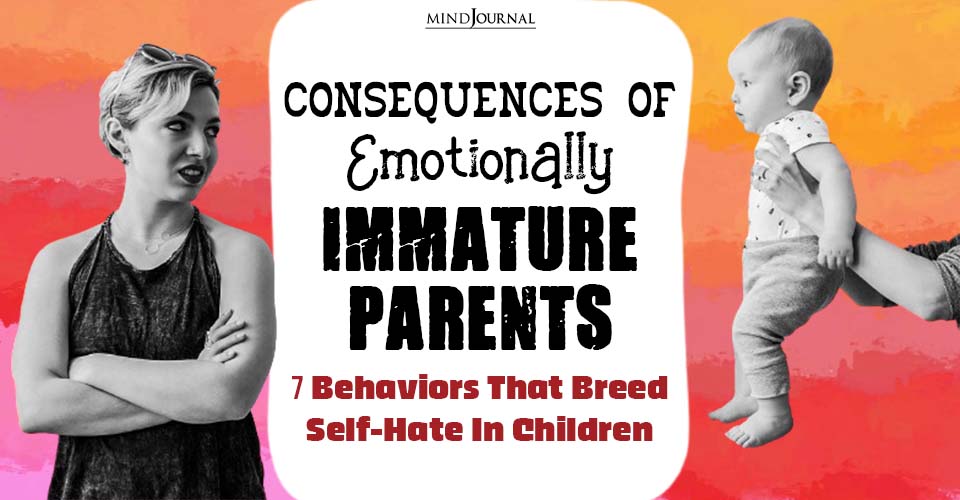Guilt Trippers are world-class blamers, martyrs, and drama queens. They know how to make you feel bad by pressing your insecurity buttons. They use guilt to manipulate so you do what they desire. They like to see you squirm and throw you off your game. This gives them a sense of power and control.
Guilt can be conveyed with words, tone, or even a glance. Guilt trippers like to play dirty. To get their way, they exploit your desire to please them or be a good person. They often start sentences with, “If it wasn’t for you…” or “Why don’t you ever..?” They’ll talk about life being unfair and compare your efforts with others who’re doing it better. “Why can’t you be more like Buster–he’s so good to his wife and is such a hard worker.”
They also remind you of how much they always do for you. After you’ve been guilt-tripped, you may feel two inches tall if you believe these people’s crafty ploys.
Related: 40+ Body Language Signs To Strip Down Someone’s Personality
Are You In A Relationship With A Guilt Tripper? Take This Quiz
To determine if you have a guilt tripper in your life answer Yes or No to the following questions. Then you can use the strategy in this section to protect yourself from being energetically drained by them.
1. Do you know someone who tries to get their way or control you by making you feel guilty? Yes/No
2. Do you know someone who makes you feel “less than” by constantly comparing you to others? Yes/No
3. Do you know someone who acts like an angry victim? Yes/No
4. Do you feel emotionally and/or physically drained after being with someone who is complaining or berating you? Yes/No
5. Do you know someone who you are always trying to please but never seem to do things correctly? Yes/No
Results of the Quiz:
Give each Yes response one point and count up your score.
Your Score: 0
Good news! If you answered “no” to every question then it is unlikely that you are in a relationship with a guilt tripper.
Your Score: 1
If you answered “yes” to one question then there is the possibility that you know a guilt tripper. Be watchful with this person(s) for any other indications and ensure that you address them early in the relationship.
Your Score: 2
There is an indication here that you know someone who is a guilt tripper. Make sure you understand all the ramifications and look for any vampire tendencies.
Your Score: 3
You are in a relationship with someone who has moderate guilt-tripping tendencies. Be very careful of your interactions with them and ensure that you have established good boundaries.
Your Score: 4
This person(s) definitely has guilt-tripping traits. Be very conscious of their manipulations and their ability to drain your energy. Keep your protection up.
Your Score: 5
You have a guilt tripper in your life and chances are this person(s) is also verbally abusive. Can you opt out of the relationship? If not, again set good boundaries and learn the action plan below to protect your energetic well-being.
Related: 5 Types of Narcissistic Blame Shifting
Action Steps To Deal With Guilt Trippers From “The Power Of Surrender”
1. Surrender the notion that you have to be perfect.
The guilt tripper tends to lose interest if you don’t go for their misguided manipulations. Everyone makes mistakes. It’s human. You don’t have to be perfect or squeaky clean. If you hurt someone or made a mistake, accept that you can’t change the past.
But you can make amends when appropriate. Apologize for offending a relative, pay back money owed, or simply convey, “I wish I had been there for you more.” Focusing on solutions instead of wallowing in guilt is a way to surrender to positive forces, rather than succumbing to the pull of negativity.
2. Surrender guilt with tears.
One physical way to release guilt if you’re fixated on a mistake you made or not meeting someone’s expectations is to cry. Do this when you’re alone or with a supportive person.
Tears release stress hormones and help you heal. As you cry, your body expels guilt and tension. This helps you let it all go. Don’t fight the surrender of crying. Let tears cleanse stress from your body.
3. Know your guilt buttons.
No one can make you feel guilty if don’t believe you’ve done something wrong. However, if you doubt yourself, guilt can creep in. Believing you are doing the best you can in a situation can quell any guilt and bring comfort no matter what anyone says.
Related: 4 Abusive Behaviors That Are Not Physical But Equally Damaging
4. Set limits.
Start a conversation positively. In a matter-of-fact tone say, “I can see your point of view. But when you say (fill in the blank) my feelings are hurt. I’d be grateful if you didn’t keep repeating it.”
You might make some topics taboo such as money, sex, or personal appearance. Keep the conversation light, don’t go for their bait, and try to gradually heal your insecurities so you don’t buy into theirs.
Be aware that there’s a difference between healthy remorse and guilt. Remorse is regretting how a situation turned out or how you behaved. Then you can acknowledge the mistake and make amends. You’ll feel genuinely sorry, but you don’t stay stuck there. Guilt, however, is when you become attached to remorse and self-blame, a reverse form of ego where you keep focusing on a “lacking” or a mistake.
Written by Dr. Judith Orloff MD Originally appeared on Dr. Judith Orloff MD









